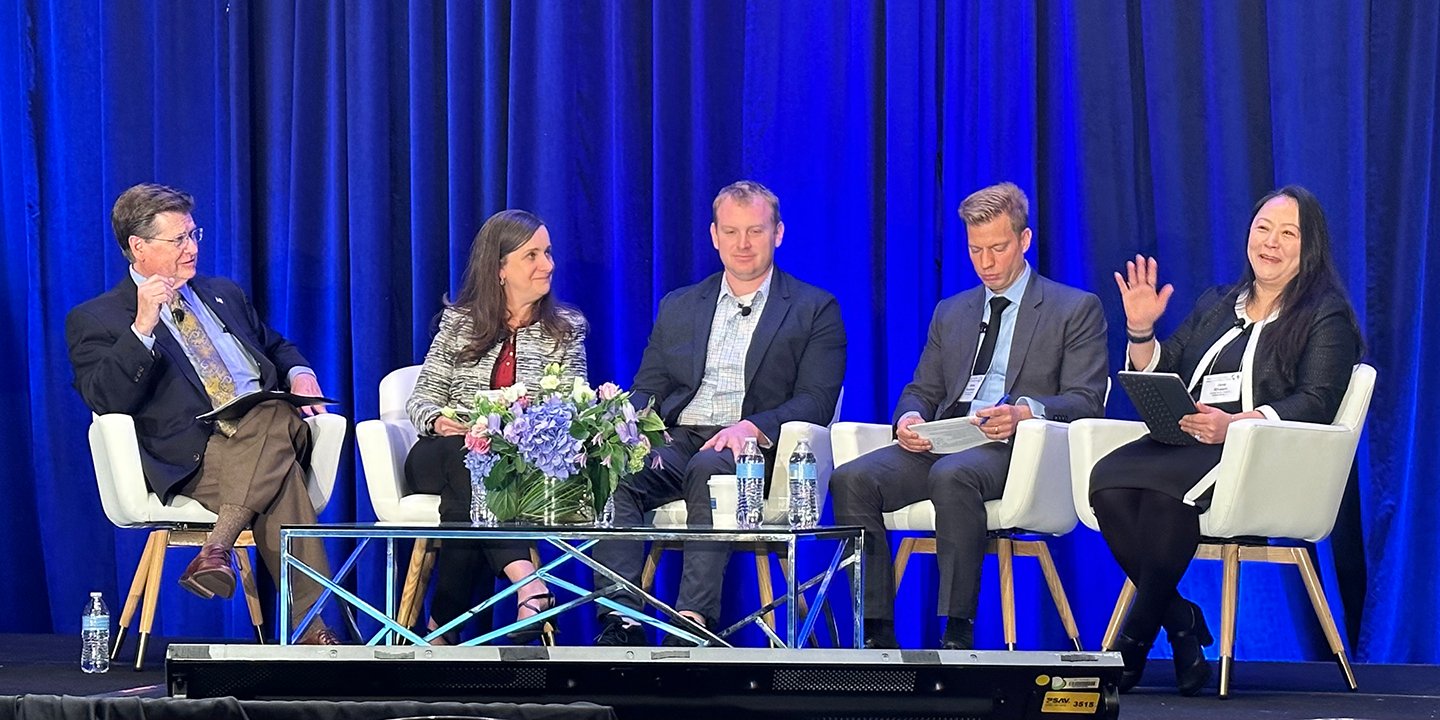Jane Rheem shares Zurich’s approach to AI during 2023 NAIC International Insurance Forum
Cyber and TechnologyArticleJuly 18, 2023
New technological innovations such as artificial intelligence (AI) and machine learning are revolutionizing the insurance industry, impacting many core insurance functions and activities designed to anticipate, meet and exceed customers’ expectations and needs.
Since 2015, Zurich North America has been using AI in its business processes to assist our Underwriting and Claims teams in processing information faster and to help enhance the customer experience. Innovations are helping remove friction from a process-heavy industry, which traditionally has created a significant amount of operational inefficiency.
These were among the sentiments shared by Jane Rheem, Chief Data and Analytics Officer at Zurich North America and other panelists during a discussion on “Innovating Smarter – Technology’s Impact on Policyholders” at The National Association of Insurance Commissioners’ (NAIC) 2023 International Forum held in Washington D.C. this past May.
Rheem oversees Zurich North America’s Chief Data Office, which includes a team of data scientists focused on building models that support Zurich's customers, underwriters and claims professionals. She took the stage accompanied by moderator Dean Cameron, Director of the Idaho Department of Insurance; Lauren Cavanaugh, Director of Risk & Regulatory Consulting; Josh Hershman, Executive Vice President of Insurance for FairPlay; and Dennis Noordhoek, Director, Public Policy & Regulation for The Geneva Association.
Risk management focused on prevention
The panel also discussed how innovation is transforming and modernizing risk management by focusing on preventative solutions that can lead to behavioral change and smart adaptations resulting in less need for mitigation and restoration.
“We know that preventative measures on average cost just a fraction of what restoration or remediation efforts will amount to after an event has taken place,” Rheem said during the panel discussion. “Zurich is transforming itself into a risk-prevention service provider, with traditional risk and insurance transfer becoming the complimentary residual activity within an overall risk management approach.”
Risk prevention through the use of innovations like wearable devices to better understand and prevent injuries caused by repetitive movement, and telematics early warning systems for property flooding and fires are good examples.
“This is really the direction Zurich is going, preventing a loss from happening in the first place,” said Rheem.
Panelists moved to catastrophe modeling where they agreed with Rheem about the role that big data and machine learning have played in mitigating risk. This allows insurers to understand risks in an environment of constant climate change, and it provides the tools to then mitigate the risks that accompany the unpredictable nature of catastrophic events.
Ethical responsibility
“We continue to see innovation in technology move forward, but every new innovation seems to come with a new set of concerns, questions and risks,” Rheem said.
In the catastrophic modeling scenario, it is the insurer’s responsibility to understand the complex models with a focus on the inputs going into the models, as well as determining the output data is accurate to ensure ethical practices, fair pricing and anti-discriminatory underwriting.
The ethical responsibility that comes with having data and using advanced technologies includes ensuring fairness and privacy with transparency and clear accountability.
Through its public data commitment, Zurich aims to be a leader in responsible handling of data and supports ethical use of technology. The company follows an AI Assurance Framework for taking precautions to ensure the adoption of AI is well managed and includes safeguards.
“Zurich takes social responsibility very seriously,” said Rheem. “We value the trust of our communities. Our customers trust us to use new and innovative technologies responsibly.”
Communicating and collaborating with regulators
Zurich has implemented self-imposed limits and clear guidelines, which are actively shared with and explained to regulators. Understanding the importance of working with regulators is one key to staying abreast of regulation.
Communication and collaboration between Zurich’s Government and Regulatory Relations team and the Data Governance team has allowed Zurich to maintain its proactive approach to keeping the lines of communication open with regulators.
“Having a collaborative relationship with the NAIC and chief insurance regulators from all 50 states, the District of Columbia and five territories has provided the opportunity to work together on issues of importance to the industry, including technological innovations like big data, AI and machine learning,” Rheem said. “Zurich aspires to lead the industry in the space of responsible AI.”
Watch the NAIC 2023 International Insurance Forum panel discussion, “Innovating Smarter – Technology’s Impact on Policyholders.”
